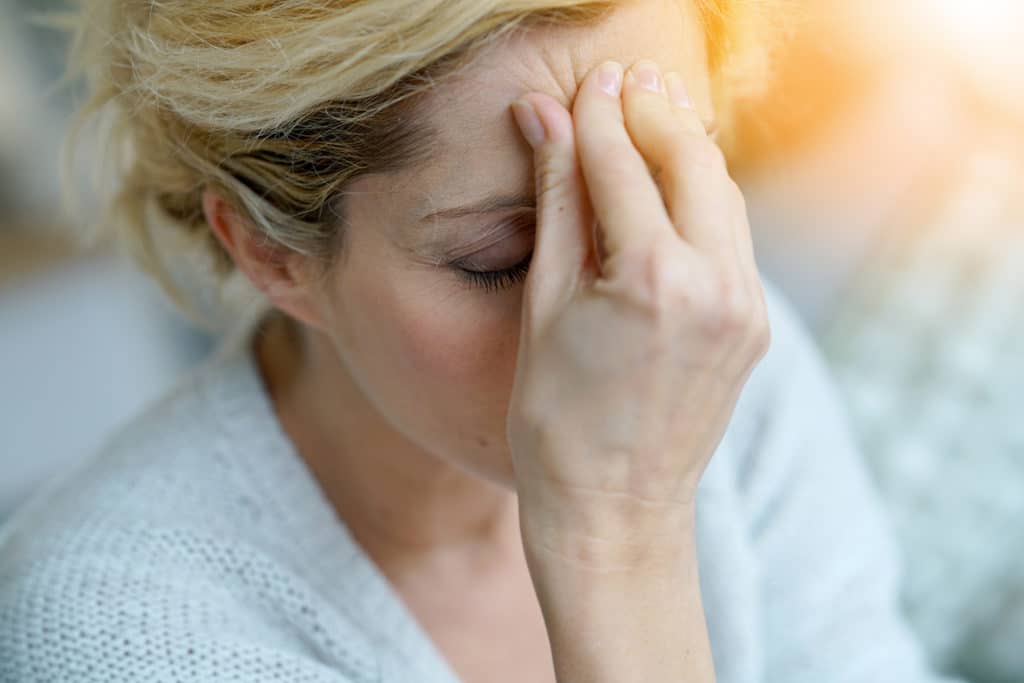Hormonal Headaches
Symptoms in Detail
Menu
Hormonal headaches really are a ‘thing’ and are often experienced in peri/menopause.

In fact, some women may have a history of headaches occurring around the time of their period and ovulation and they get some relief once they’re in menopause because the hormonal fluctuations diminish. Others, however, find the peri/menopause years trigger an upsurge in headaches or – worse – migraines.
What can cause headaches/migraines in menopause?
As is so often the case the hormone rollercoaster and eventual decline in estrogen that occurs during menopause can be why headaches are triggered. The hormone-headache link is not fully understood but is believed to be to do with estrogen causing the blood vessels to dilate.
Know the 34 symptoms of menopause
Here are all of the documented symptoms of menopause you need to look out for:
Physical Symptoms
- Incontinence
- Changes in Body Odour
- Bouts of Rapid Heart Beat
- Breast Pain
- Headaches
- Joint Pain
- Itchy Skin
- Burning Mouth Syndrome
- Electric Shock Sensation
- Digestive Problems
- Gum Problems
- Increased Tension in Muscles
- Formication - Crawly Skin
- Paresthesia - Numbness in Hands and Feet
- Osteoporosis - After Several Years
Psychological Symptoms
Share with a friend
Facebook
Twitter
LinkedIn
Email






